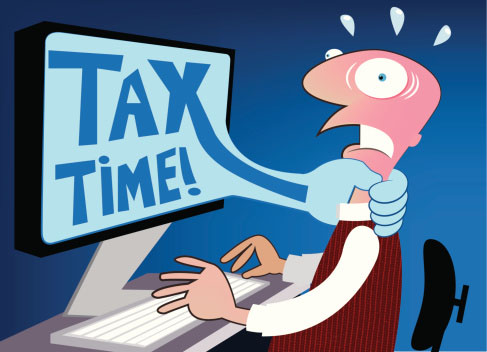The phrase “growing up” entails many things. Usually, the first aspect that comes to mind is responsibility. I’m talking about real, personal responsibility, part of which is financial responsibility. Throughout the years, Americans have accumulated mass amounts of personal and credit card debt. This issue has been mainly driven by Americans’ reliance on credit cards to obtain things they can’t realistically afford. Unfortunately, unless they are taught by their parents, most people never learn the basic skills required for success in the real world. The good news is being financially savvy is simple, and I’m here to set you up with a solid foundation.
For starters, it’s important you have some basic knowledge about taxes, because you should know by now it’s inevitable that you have to pay them. Most of us hopefully filed last week before the April 15 deadline, but for everyone else you can still file for an extension or you may not even be required to file this year. Basically, as soon as you begin to earn your own income, you are eligible to be taxed. This can be daunting, and I assume a few questions about this have flashed through your mind in the past few years: Do I have to file? How do I file? When do I need to file by?
Tax requirements differ depending on whether you are an independent or a dependent. You are considered an independent if no one else claims you on their tax forms. You are considered a dependent if your parents or a family member provide more than half your care. Or if you are under 24 years old and a full-time student, you may be claimed by your parents if they help pay tuition. This part should be easy to figure out–do you support yourself or are you financially reliant on your parents?
Now you need to figure out if you’re required to file taxes or not. This year, most college students will fall under one of these categories. You must file if you are:
- An independent, younger than the age of 65, single and earn a gross yearly income of $10,000 or more
- A dependent, younger than the age of 65, single and earn a gross yearly income of $6,100 or more
- A dependent, younger than the age of 65, single and your unearned income is $1,000 or more (unearned income is interests from dividends and investments)
The IRS website will help you figure this out if you’re still unsure. All you have to do is answer a few questions.
If you do happen to fall into one of these categories, there’s no need to panic because there are several methods to filing taxes. The IRS offers its own program, FreeFile, on their website at no cost to users that qualify. You can access every form imaginable from the IRS website, allowing you to personally print and fill out your own forms. There are also numerous software programs on the market that are aimed at smoothly guiding users through the proces. Alternatively, you can hire a tax professional to handle pretty much everything for you.
Next, let’s talk about the next step in financial responsibility–building credit. We’ll go over the basics. Credit is described by Experian as “borrowed money that you can use to purchase goods and services when you need them.”
Credit is earned when someone uses a credit card, which can be either good or bad. Building good credit is essentially building credibility. When you charge expenses to your card and pay them off by the due date, you are showing the credit card company that you are reliable, earning you good credit. On the other hand, if you were to miss several payments your credit score would be negatively affected. Having good credit is essential. In the future it will allow you to apply for bank loans, purchase a house or car and get lower interest rates.
Having a credit card is a big step and you should only take it if you feel responsible enough to manage your finances on a more complex level. That being said, here are a few final tips to help set you up for success. Begin by choosing a credit card that is realistic for you. There are plenty of student-aimed credit cards that offer 0 percent interest rates for the first 7-18 months. Also, choose a card that offers rewards such as cash back or gas rewards–you are more likely to actually spend enough to earn those rewards. And to keep all your expenses in check, learn how to use an Excel spreadsheet at the most basic level. Spreadsheets will help you balance your checkbook and keep track of expenses, such as what you’ve paid off and what you haven’t.
Being financially savvy is pretty simple and it just takes a few simple skills. And while taxes and financial statements are not the most exciting, managing them properly from the beginning will benefit you immensely in the long run. Let’s be a generation of savvy spenders so we can put an end to this trend of never-ending debt.
Photo courtesy of Thinkstock.









